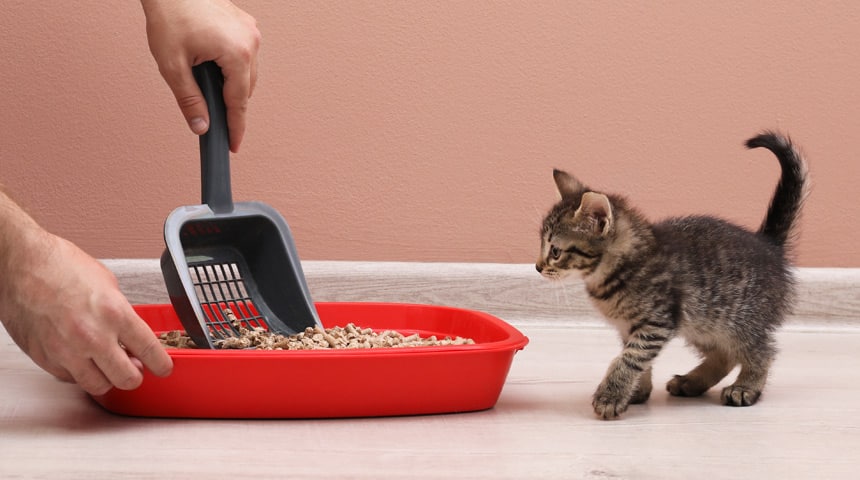
- Try to determine if the cat has recently experienced stress. Stressors may include changes in temperature, changes in the cat’s environment (moving, arrival of a new pet or family member), the cat’s diet or feeding schedule, the type of litter box used, etc.
- Provide a separate litter box for each cat.
- Keep litter boxes in quiet areas of the house (avoid areas with a lot of noise or traffic). Try to place a litter box in a separate room for the affected cat (a room where other cats or pets in the house won’t have access).
- Use unscented, fine-grained litter (not all cats like the same types of litter).
- Do not use a litter box with a cover.
- Place food and water bowls in a quiet area of the house, away from windows, air vents, exhaust fans, etc. Keep bowls away from the litter box.
- Make sure to change the litter box frequently.
- Give the problematic cat more space and give it a chance to "be a cat”. Remember that cats are independent creatures who like to be in control. Ideally, the cat would appreciate his own room with a scratching post, food and water bowls, and a litter box. Provide toys for him to chase and catch, as well as adequate scratching surfaces.
- Introduce any changes to the cat’s routine, including food changes, very gradually.
- There are spray products that can be recommended by your veterinarian to try to reduce the "environmental anxiety" that your cat may be experiencing. These sprays can be used near the litter box, food and water bowls, in areas where the cat likes to go.
- Your veterinarian may recommend medication for your cat if his stress level remains high.
Share:

